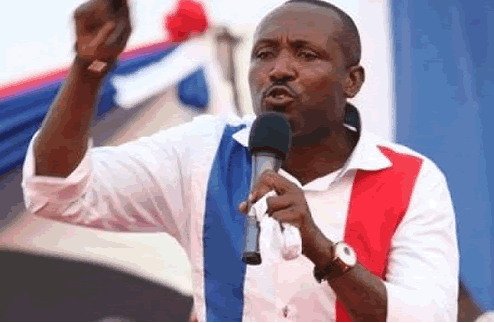
With a spike in its Corona virus (Covid-19) cases, India has halted the export of the Oxford-AstraZeneca vaccines to Africa.
This has cut short the expectations of many Africa countries, including Ghana, who relied on the drug to avert the woes brought on them by Covid-19.
It would be recalled that about 92 countries signed onto the COVID-19 Vaccine Global Access Facility (COVAX) which aimed at ensuring equitable access of vaccine for everyone.
Subsequently, Ghana was the first country to receive the vaccines. The country took delivery of 600,000 doses of the AstraZeneca COVID-19 vaccine made by the Serum Institute of India (Covishield) on Wednesday, February 24, after which many other African countries started receiving theirs.
Just like Ghana, many African countries hailed the arrival of the vaccine in their respective countries since it was bound to ease economic hardships on their citizens as a result of the pandemic.
In Ghana, the vaccines arrived at the Kotoka International Airport on an Emirates Airlines cargo flight and were received by a delegation led by the Minister for Health, Mr Kwaku Agyeman-Manu.
In distributing the vaccines, many African governments prioritised administering the first doses to more of their populations with the expectation that more doses would soon arrive.Ghana also did same.
Health workers, adults 60 years and over, people with underlying health conditions, frontline executive, legislature, judiciary and their related staff, frontline security personnel, some religious leaders, essential workers, teachers and other personalities in the Greater Accra and three other regions received the jab first.
According to the Extended Programme on Immunization (EPI) of the Ghana Health Service (GHS), a total of 405,000 persons were vaccinated against the Covid-19 from March 2 to 18, out of the 20 million Ghanaians expected to be vaccinated against the virus.
On the African continent, the Covax initiative has so far delivered 18 million vaccine doses to 41 African countries, the World Health Organisation reported.
Currently, some countries including Rwanda, Senegal, Ghana, Togo, Tunisia, eSwatini and Botswana have already exhausted their initial supplies from Covax and are awaiting supplies, but they would have to wait until early May to mid June for more.
This is because India’s own battle against the coronavirus has taken a sharp turn for the worse. The country said its hospitals are rationing oxygen and families are scrambling to find open beds for infected loved ones.
The government of India has, therefore, held back nearly all of the 2.4 million doses that the Serum Institute of India produces each day.
As the world marks “Immunization Week” which falls on the last week, the Ghana Immunization Advocacy Initiative (IAI) Network, comprising SEND GHANA, Hope for Future Generations (HFFG), and Ghana Coalition of NGOs in Health (GCNH) has called on the government to invest in research and development, build the capacity of local pharmaceutical companies to respond to Ghana’s immunization needs and future pandemics through local vaccine manufacturing and development programs in order to avoid some of these panics being caused by India.
The Network holds the view that the government’s commitment to immunization financing is low.
Presently, the government is utilizing an unspecified portion of the National Health Fund (NHF) to support the procurement of vaccines and routine immunization activities which is not sustainable. It therefore advised the government to set aside a dedicated budget to finance Epidemic Preparedness and implementation of the National Action Plan for Health Security (NAPHS), as well as the Ghana Centre for Disease Control to respond to the threat of epidemics.
On the African front, the group also wants the AU to explore ways to harness the potential of Agenda 2063 and the African Continental Free Trade Area (AfCFTA) to promote continent-based solutions to the health needs of the people.
“As a medium to long-term approach, the AU could begin to produce vaccines within, to increase vaccine security and reduce procurement from outside the continent”, the IAI indicated.
The post India bans export of AstraZeneca and creates fear and panic in Africa appeared first on The Chronicle Online.
Read Full Story









Facebook
Twitter
Pinterest
Instagram
Google+
YouTube
LinkedIn
RSS